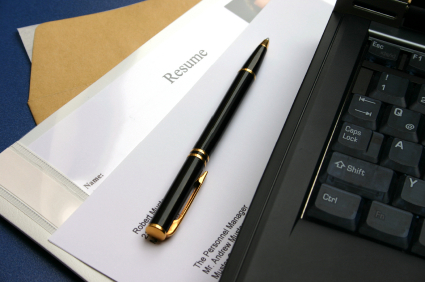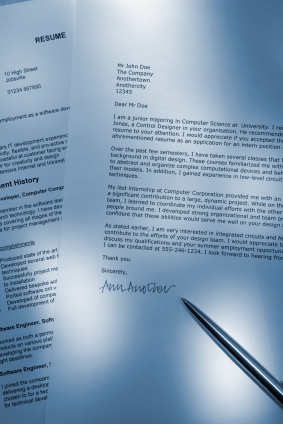 You have just seen a posting for a job that you really, really want. Your resume is ready to be emailed, you just need to fine-tune your cover letter and hit “send”. One thing is holding you up…this job is asking YOU to communicate your salary requirements. Exactly how are you going to do that? No need to worry-we offer a few tips to get you on the right track.
You have just seen a posting for a job that you really, really want. Your resume is ready to be emailed, you just need to fine-tune your cover letter and hit “send”. One thing is holding you up…this job is asking YOU to communicate your salary requirements. Exactly how are you going to do that? No need to worry-we offer a few tips to get you on the right track.
• Look at the job title and description of qualifications/requirements. First, do you meet all of the requirements they are asking for? Even if you only have a portion of the qualifications listed in the job description, as long as you have the majority of them, you should still apply for the job.
• Research similar positions that are out there and see what salary ranges are being offered. There are hundreds of job sites (glassdoor.com is a good one) on the internet that post salary ranges for specific positions, and some will even show what those positions make in different geographic areas. If you are able to get compensation information, that would help you as well.
• What are you making at your current job? If you are making $55,000 per year now, it wouldn’t look good to demand $85,000 for the same type of position (unless the new position has more requirements and/or is a managerial role). Yes, you will want to up the ante from what you are making, but you still need to be realistic.
• If the salary range is not listed on the job posting, contact the employer and ask what the range is. If you have a lot of experience, put your salary requirements toward the top of the range. If you are basically new to the field or only have a few years of experience, go mid-range or a little lower. You can always move up the scale once you get your foot in the door and show them what you can do.
• Never list your salary requirements at the beginning of your cover letter! Draw them in with your qualifications and achievements, then end with your salary requirements.
• Once you have done all of your research and have established the salary requirements you’re going to ask for, list those requirements, as well as the compensation package in your current position toward the bottom of your cover letter. You can even let them know that you are willing to negotiate based on your qualifications, benefit structure, job responsibilities, and advancement opportunities.
If you do land an interview, revisit your facts and research and be prepared to discuss your salary requirements during the interview. While communicating your salary requirements may seem awkward at first, presenting your information in a professional manner based on facts and research will impress the employer and hopefully get you the job you are trying for.
Today’s Guest Post is by Medical Sales Recruiter, Peggy McKee

<>
The era of the thank you note after a job interview is over.
Well, not the actual “thank you,” just the delivery system.
It’s critically important that you thank the interviewer for the opportunity, but it’s also critically important that you get it to him within 24 hours. And a handwritten, snail-mailed note just won’t do that. Send an email.
Many people still extol the virtues of the handwritten thank you note as a way to demonstrate your good manners and set yourself apart in the interview process. But while that’s nice, it’s not necessarily effective. A well-written thank you note already demonstrates your good manners and excellent communications skills. You don’t need to put a stamp on it to do that.
But there’s something else that comes into play here: As a recruiter, I know that many hiring decisions are made quickly. You can’t wait to send your thank you just in case this window of opportunity is one that will close quickly.
What should you make sure you include in your message?
In your thank you email, you should talk about how much you appreciated the opportunity to meet with them, how much you enjoyed learning more about the organization, how you think your x, y, and z skills will really help their company with a, b, and c issues, and how you’re looking forward to talking with them further about this process.
If you meet with 4 people, you need to send 4 thank you emails.
But here’s one note of caution: While I’m all for sending your note quickly, don’t go too far and try to send it with a text from your phone. There are too many opportunities for mistakes-and they have been made. Stick with your email-and spell check it.
+++
Peggy McKee has over 15 years of experience in sales, sales management, sales recruiting, and career coaching. She has one of the best blogs I’ve ever read and it is jam-packed with information you need to get into medical sales or increase your sales. Go to https://www.phcconsulting.com and see for yourself.
Making Sure You Have Strong Cover Letters and Email Messages
Cover LettersInterviewingJob SearchResume KeywordsResume Writing
You know how you always hear, “Typically, recruiters and HR managers look over a cover letter in less than a minute to determine if you’re a strong candidate?” Well, I’m here to tell you that it’s TRUE. Your cover letter must prove to readers that you are a viable choice for the position, and we can show you just how to do that.
Make sure to choose the right greeting in your follow up email or letter.
If you have the person’s name and gender, include this in your greeting. Make sure to use the proper Mr., Mrs., Dr. or title along with their last name. Do not use their first name unless you know the person. If you do not know the gender of the person, you can use an introduction such as “Dear Danny Smith”.
It’s important to have the HR manager’s name correct. If you have questions, then call and ask for the information through the company, or look them up on Facebook or LinkedIn.
Reference the position title, company name and where you learned of the position.
An example of this: “I recently heard of Telecomm International’s open Corporate Liaison Officer position on Monster.com.” This information shortens the time it takes for HR managers to sort through resumes and increases the chances that your resume will be chosen.
Explain why you are the best person for the job.
You don’t want to do a repeat of your resume, but you do want to state how your background, qualifications and abilities will help the company succeed.
Example: “As my resume states, I have the talent, versatility and experience that comes with 20 years in corporate marketing, branding and public relations with Large Multinational Corporations as well as Local Well-Known Businesses. I also have years of experience as a Digital Freelancer working with Company Wide Initiatives that will definitely benefit your company.”
Be sure to include keywords from the job description and make use of power words to elaborate on your capabilities. Reinforce your relevant experience working with the job’s specific duties as well as your knowledge about needed computer programs which were indicated in the job description.
Be Brief.
If you send your cover letter through the mail, make sure it’s one page. Email messages should be kept to around 3-5 small-ish paragraphs. Your paragraphs need to be brief as to not take up too much time.
Include contact information and the best time and way to speak with you.
List your cell phone, home phone and the email address you use the most and let HR managers know how to best contact you through your preferred method. If you are currently employed or in a situation where you cannot return calls, make sure to leave a call back number, or list some times where you are free to talk.
Proof read your cover letter and email message.
Do this over and over until you are sure that everything is in place and you have mentioned the position, company name and included any applicable contact information.
Following these tips will help you to create cover letters and emails that will stand out to HR Managers and recruiters looking for their next candidate.
The Necessity of Professional Cover Letters
BlogCover LettersJob SearchProfessional ResumesResume KeywordsResume WritingResumes
Many job seekers stress over cover letters more than they do their own resumes. It may surprise some, besides cover letters are typically a one-page preface to your intricately prepared resume. But, the truth is, that your resume may look dull without a good cover letter to introduce it. Cover letters introduce you to HR managers and set the tone for how your resume will be received. You can have a perfect resume, but if the cover letter is not well done, then your resume will not get the type of attention it deserves. Everyone looking for a job should have a professional cover letter and resume in order to find the career that’s right for them.
When you first enter the job market (most of us at around 21 years of age) don’t know how important cover letters are for you, much less how to write one that sells you. Many people are not aware of the benefits that a simple, well-crafted cover letter to a prospective employer can have. They introduce you to your prospective employer, but also they give a glimpse of your personality.
Just a few weeks into your job search, you will realize that a well-crafted cover letter is not an option, it’s a necessity. Through the support of a professional resume and cover letter writer, you can finally have the cover letter that sells your individual personality and traits. If you have a cover letter, it could always use another eye on it in order to see where you can make changes or additions. You want to sell yourself in your cover letter, your resume speaks to what type of experience and qualifications you have, that’s why it’s important to have a cover letter that sets you apart.
But, just having one is usually not enough. After a few weeks or months of unanswered applications and fruitless job searches, you begin to come to a final conclusion.
When you, or your cover letter writer, writes your first letter, the primary focus is on presentation and the format. How long should the cover letter be? Where to assign the date? What type of font is right for my cover letter? But, throughout you want to focus on one thing – quality content. If your cover letter is full of buzz words or just inane babble, then it’s not worth the paper it’s printed on.
It’s always important to remember, before you start writing, that content is king. It’s fairly easy to lose sight of what’s important and lose focus instead of paying attention to what’s important. That doesn’t mean that there are not guidelines to follow, but your cover letter writer can help you deal with the details. You do not want to have spelling or grammatical errors in your cover letter. That’s an instant turn off to any prospective employer. Remember that the main point of your cover letter is to get noticed and sell yourself.

The following is a guest post from careers writer, Brendan Cruickshank.
++++
The idea is such a joke that there is now a book out by this name, Overqualified by Joey Comeau. Comeau writes cover letters to send with resumes, but they are not your run of the mill cover letters. Instead, they are outrageous, over the top cover letters. Comeau writes cover letters that say things like “It sounds like the sort of job that I don’t even need to think about while I’m doing it,” and “I have been programming Perl for eight years, on every business appropriate platform there is, and I’ve been around long enough to understand that there are no human beings reading this.” Comeau writes his letters as a joke, but as with all jokes, there is a kernel of truth here.
And the truth is, people who are overqualified for a job get cynical and jaded. Please don’t apply for or take a job for which you are overqualified. Even if you are hired (and most employers know better than to hire someone who is grossly overqualified), that job will not only make you unhappy, but make everyone around you, at work and at home, utterly miserable.
Good human resources managers know this already: an underqualified and inexperienced candidate is preferable to an overqualified one any day. Why? If you are underqualified, but enthusiastic about a job, you can and will learn how to do it. Learning the job will give you a challenge – and employees who are appropriately challenged are a joy to be around. They approach their work with creative, open minds. They don’t bring with them any preconceived notions or entrenched bad habits that they learned from previous coworkers or managers. Most importantly, they are not burned out.
If you lack experience for the work that you are applying for, don’t try to hide that fact. Instead, play up the advantages: you are enthusiastic, eager to learn, bright, open, full of energy and ideas. Once you get to the interview stage, it will be relatively easy for you to show your enthusiasm for the job. But in your resume, it is harder. If you want a potential employer to notice your energy and enthusiasm, and ask you in for an interview, use your resume to highlight the experience that you do have, and to point out areas of your life in which you show tremendous energy and motivation, even if those areas come from volunteer work, internships, extracurricular activities, or sports that you participate in.
Then, write a compelling cover letter – not a Comeau-esque letter like the ones I’ve quoted above, but a letter that shows your personality and the ways in which you are personally a good fit for this kind of work. Take a humble approach. Write about what you think you can learn from the job you are applying for – what you can learn from your supervisors, from your colleagues, from the company itself. This might sound like a risk. It might sound as though you are highlighting your own lack of experience. In a sense, you are, but that’s okay. What you are really doing is showing that you are ready for something new – and that you are smart enough to recognize a good opportunity when you see it. Have you ever heard the expression, “flattery will get you everywhere?” Flattery may not get you everywhere, but in a good cover letter, it will get you in the door for an interview – and that’s exactly what you need it to do.
—
In his 8 years in the job search and recruiting industry, Brendan has served in senior client services roles with major sites like Juju.com and JobsInTheMoney.com. He has been regularly quoted on topics such as employment as well as jobs. His opinions have appeared in the Wall Street Journal and US News & World Report as well as other major publications.
Top 5 Ways to Increase Your Chances of Finding Employment
Career & WorkplaceCover LettersJob SearchNetworkingProfessional ResumesResumes
When you’re out of work, you need to use every advantage you can think of to increase your chances of finding a job. With today’s fluctuating job market, there are more people applying for the leftover jobs than there are jobs available. This makes finding a job incredibly difficult. Of course there are some things you can do to help improve your chances of finding a job.
Make finding a job a full-time job
- If you are looking for a job, then you probably spend most of your time looking for a new job. While you’re looking, it can become tempting to watch TV or browse the internet. But, instead set a schedule for yourself and follow it. Every day your schedule should reflect your job-hunting efforts.
Start working on your resume
- You need a resume that will stand out above the mass of people applying. The average hiring manager spends between 10-20 seconds reviewing a resume, so it has to be eye catching to get noticed. You want to have more than one resume when applying for jobs, so it helps to have professional resume writers review your resume and make needed changes. Depending on the job you’re looking for, you will need to highlight different aspects of yourself on your resumes. Professionals are great at creating different resumes for every client.
Don’t skimp on the cover letter
- Think of the cover letter as a quick handshake introduction to a prospective employer. Your cover letter should be unique to the job you are applying for – don’t send out a cover letter addressed to “Sir or Madam”, you want it to be personal and show that you put some effort into the process. Highlight your skills that will set you apart from other prospects, and never, ever use a generic cover letter. HR managers can spot those a mile away.
Get your networking on
- Networking is a great resource for professionals seeking employment. With websites like LinkedIn and Facebook, you can connect directly with people in your industry, in the area that you wish to find employment. Let people know that you are looking for a job–there’s no shame in asking if someone is hiring. Other professionals can often connect you with HR managers when your skills are qualified. But, you need to do more than just network online, get out and go to some networking clubs or events. You can meet more people over a drink than you can with blasting out your resume to Facebook friends.
Start expanding your search
- Sending out resumes in one industry may have worked in the past, but that’s simple not the case, today you have to be well versed in many different fields. You never know what your next platform for success will be. If you have experience in marketing, then your next career may be in sales or advertising. Just try to branch out and see what’s out there.
Women Going Back to Work After a Baby
BlogCareer & WorkplaceCover LettersFamilyInterviewingJob SearchProfessional ResumesResume WritingSalary

Many women choose to stay at home for several years after having children. While this time frame varies, it always creates a period of time during which you had no ‘real’ job. Once a mother is ready to go back to work, one of the first problems they face in deciding how to write a resume that not only accurately describes their professional experience and career but also properly addresses extended maternity leaves. By using tact and creativity while remaining professional, it is often possible to ‘spin’ an extended leave for the purposes of resume writing and interviewing.
Be honest. Some job seekers mistakenly believe that extended maternity leave is an automatic black mark. Because of this, some lie and claim they were self-employed during their maternity leave. This is a patently bad idea. While it is unlikely that a future employer will investigate the claim, lying during the job seeking process is unethical and can lead to problems down the line. Instead, be honest about your extended work leave. I have found that all hiring managers want is an answer. Where were you all that time? On an extended vacation? Watching Oprah? In prison? They just want to know about the gap.
There are two ways to present extended work leave during the resume writing process. The first is to simply include one or two sentences in the cover letter explaining the reason for your extended leave, the birth of children, and that you are ready to re-enter the work force. Job seekers who opt for this option should keep it short and focus on logical reasons versus cute stories about their children (please don’t do that). Remember to keep it professional.
A second option is including your work leave directly on your resume. Some job seekers have had success by including their responsibilities and skills used during their extended leave. Scheduling, organizing and multi-tasking are just a few of the skills new mothers hone during their absence from work. These skills, and others, can be beneficial in the work environment.
Unfortunately, the human resources community is divided on the subject. While there are laws governing hiring practices, the truth is a resume and cover letter is your first and often only chance to sway a hiring manager to meet with you. While an extended leave of absence for child care reasons may be admirable to some, actually giving the job seeker a leg up, other hiring managers may shy away from resumes that do not adequately cover the subject.
The best advice may be to carefully research the company and hiring manager for each job you are submitting your resume for and to craft a specific resume and cover letter for each job. Carefully reviewing a company website and Internet research may very well give you inside insight into the company and their practices.
Finding a job after an extended maternity leave can be a long process. In fact, it seems like the longer you were out of the workforce, the longer it takes to become employed again. Try focusing your efforts on professionally representing your time off and be as honest as you can. Remember that finding a job is a job in itself so stay positive, craft custom resumes and cover letters whenever possible and use your interview as a chance to really showcase what you can offer the company.
Should You Call a Company After You Sent Your Resume?
BlogCareer & WorkplaceCover LettersExecutive ResumesJob SearchResume WritingResumes

You’ve been looking everywhere for, not just a job, but a career, you want to do something with yourself that enables you to pay your bills but also provides a purpose. But, that’s harder than you imagined in an economy that is only slowly making its way back.
There is no ‘one size fits all’ answer to this question, and there are numerous variables at play that can affect the outcome, and every employer is a little bit different. It seems like it’s impossible to know if you are wasting your time by following up on a resume you have sent, but maybe it’s the thing that will give you a leg up over the other candidates.
It really depends…
In general, it really does depend according to some experts. It depends on how you sent in your application, if you know or can find a contact person, and just how much you actually want the job – is it really worth all the effort you put in? Here are some suggestions that may help when deciding to follow up on a sent resume.
How did you send in your resume?
How did you get your resume to the prospective employer in the first place? Did you have a contact person or did you send it in through an online contact form, or did you send it through the company website job page? If you know someone in the company, you can get help with contacting HR or you can find someone from the company Facebook page and get in touch with them that way. You’re not being creepy, you’re being resourceful.
When should you follow up on your resume?
Some recruiters and placement agencies will advise you to submit a resume, and then follow up with a phone call or email. It can show ambition and enthusiasm, as well as set you apart from other candidates who do not bother to follow up. Employers will like that you are eager to get started and are interested in the position.
But, it is certainly appropriate to send a letter or an email a week or so after you submit your resume, especially if you have not heard anything from the company. Who knows, your resume may have fallen through the cracks and a phone call is just the thing that they need to know how interested you are. But, if you have done a follow up phone call or email after sending a resume, and you have not heard anything for a few weeks, it would be best to conserve your energy and not waste time on something that probably will not happen. There are other opportunities out there for you, so you just have to go and find them.
When you follow up make sure that you are polite. Polite messages reinforce your strong interest in the job, as well as showcasing your ability to handle important topics. Every day people get jobs because they stayed the course and fought for what they wanted, maybe today is your day.
